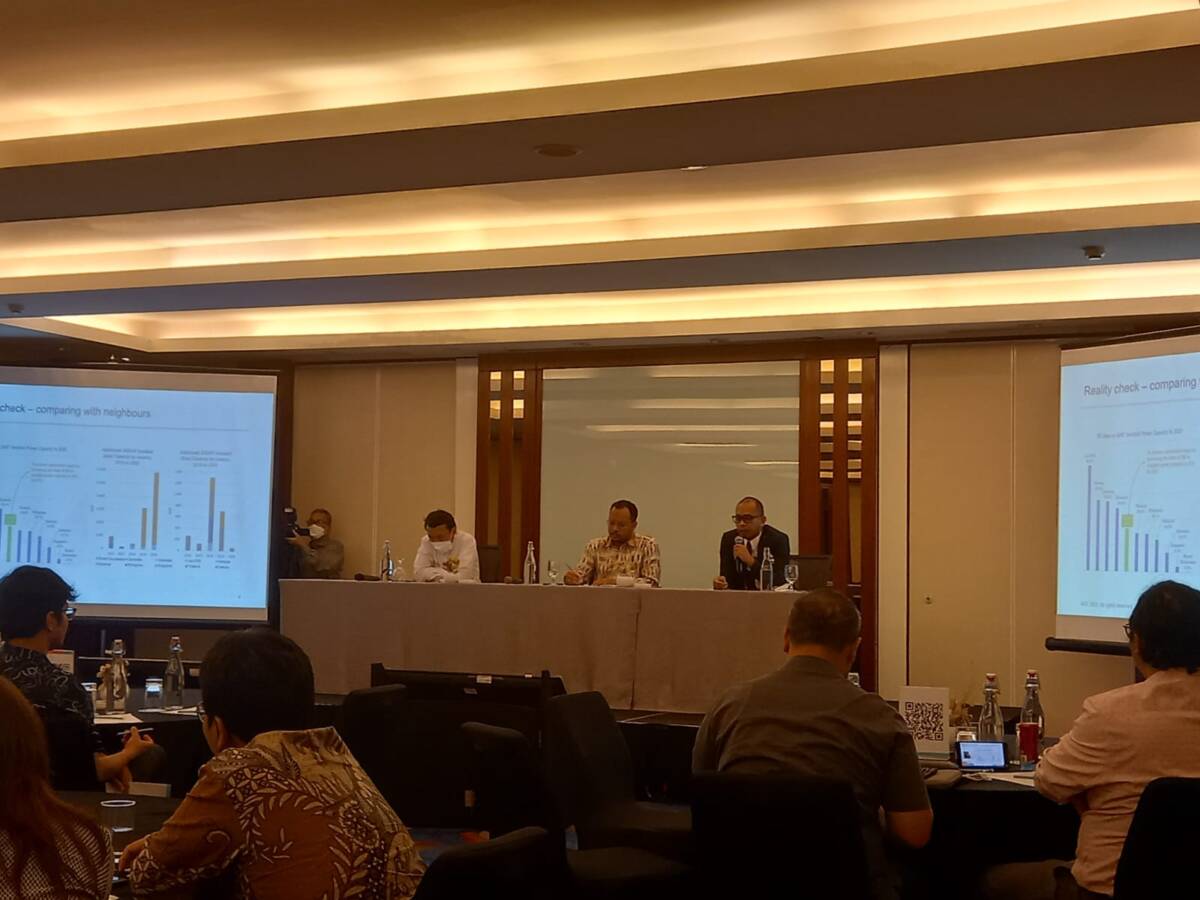Jakarta, March 6, 2023 – The Clean, Affordable and Secure Energy (CASE) Program of Indonesia alongside the Ministry of Planning and National Development/National Development Planning Agency (Kementerian PPN/Bappenas) launched a series of multi stakeholder discussions ahead of the Indonesian Sustainable Energy Week (ISEW) that will be hold on October 2023. The discussions were kicked off under the theme of “Emerging New Technologies to Support Energy Transition in Indonesia”, where different experts address the Indonesian context of technologies for renewable energy and the challenges faced to implement them.
Devi Laksmi, Coordinator of Conservation Energy Development Working Group of the Ministry of Energy and Mineral Resources (MEMR), stated the renewable energy target of Indonesia which should reach around 23% by 2025 and how the country still has massive gaps to achieve this said target. MEMR is currently developing its strategy to maximize RE potentials.
Moving forward with the discussion, Mentari Pujantoro, Project Manager of Agora Energiewende said the global carbon emission has reached its historical peak in 2022 which is caused by fossil fuels and energy consumption. Renewables, Energy Efficiency and Renewable-based Electrification can contribute to 70% of worldwide emission reduction.
“Indonesia needs to identify the existing technologies and their roles first before moving on to new technologies,” said Mentari.
Badariah Yosiana, Programme Officer the International Renewable Energy Agency (IRENA) explained the opportunities of renewable energy utilization towards Indonesian economic growth. Energy technologies could benefit the industry sector.
“For example green hydrogen could be utilized as a clean energy source and as a producer of Nickel, Indonesia could become a battery producer and exporter which would contribute to the integrated electric vehicle (EV) supply chain and solar PV manufacturing,” stated Badariah.
Beni Suryadi, Manager of ASEAN Centre for Energy stated that although renewable energy such as wind and solar will dominate the energy mix in Indonesia starting from 2031, however not a single country can reach 100% net zero emission just from utilizing both energy.
“In other parts of the world, there have been debates on the possibility of Nuclear as a secure and reliable option to replace coal. However, some still deemed this clean source of energy inflexible due to the safety requirements,” said Beni.
After three panelists presented different technologies and their feasibility, Prof. Dr. Ir. Suwarno, M.T., Lecturer of Bandung Institute of Technology, Professor of School of Electro Engineering and Informatics addressed a critical question of the country’s readiness of these technologies. He raises an issue about human resources, acceptance, awareness and regulations that would contribute heavily to the process of energy transition in Indonesia. As an academic himself, he pointed out that education and research institutes will play massive roles in preparing the skilled human resources needed to succeed.
Mr Zainal Arifin as the Executive Vice President of Engineering and Technology, State Electricity Company (PLN), said the challenges faced by Indonesia: over capacity and the trilemma of energy to ensure affordability, reliability and sustainability. Until now, the only energy source which could cover all three is hydro power according to PLN. He pointed out that in developing strategies for energy technologies, flexibility and adaptability have important roles as it is not a linear process and will be implemented in the long run.
Finally, Mr. Agus Tampubolon as the Program Manager of CASE wrapped up the discussion and presented the timeline of discussions, which will be held four times with different topics.
“These next discussions will focus on one topic at a time for a deeper conversation and all the findings will be presented at Indonesia Sustainable Energy Week (ISEW) in October 2023”, said Agus.

